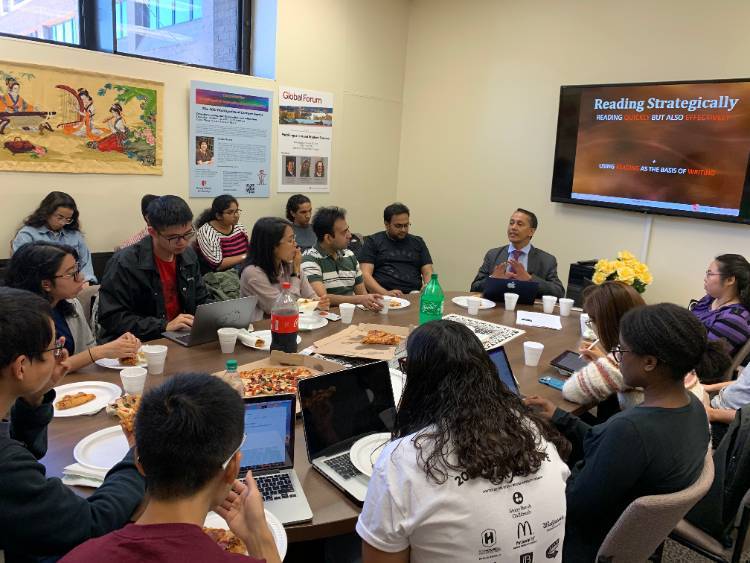Graduate Writing Support
Graduate students must do a wide variety of writing, some unfamiliar, complex, and high-stakes. From assignments for coursework (seminar papers, reports, analyses, etc.) to communication for professional purposes (emails to all kinds of audiences, presentations, proposals, applications, etc), they must write all the time, writing in all kinds of genres and on a variety of mediums and platforms. Inadequate writing skills can hold them back in terms of dissertation/thesis (and therefore degree) completion, time to graduate, professional development, job placement, and career success in and beyond grad school.

1) Dissertation and Thesis Writing Boot Camp | Every Wednesday and Friday, 1 pm to 5 pm | Zoom
The Boot Camp helps graduate students write their dissertation or thesis a LOT more by blocking time, connecting with the community, and sharing strategies/struggles at the beginning and end of the 4-hour writing sessions. Exit surveys show that participants have written better and finished earlier.
The Strategy Sessions are built into the boot camp on the last Friday of each month. Guided by a writing professor, students take a hands-on approach to develop and discuss productivity strategies as writers.
Sign Up for Dissertation and Thesis Writing Boot Camp
2) The Graduate Writing Groups | Every Wednesday and Friday, 3:30 pm to 4:30 pm | Zoom
The Graduate Writing Groups will help graduate students exchange feedback on the writing they bring to the session. Students have completed journal articles, as well as dissertation chapters, using this program.
Sign Up for the Weekly Writing Group
3) Graduate Writing Workshop Series | 90 minutes - See upcoming sessions on the GSW Program Calendar
The Writing Workshops Series is designed to empower graduate students with hands-on experience and practical skills across various writing genres. In these engaging 90-minute sessions, participants can explore and refine their writing techniques, guided by experienced facilitators. The workshops cover diverse topics such as reading strategies for graduate students, power tips for graduate-level writing, literature review methodologies, strategies for citing and engaging with sources, and more.
We believe in tailoring our workshops to your needs, so we encourage you to share your preferences, allowing us to address the specific challenges and goals you may have in your writing journey. Your active participation in these workshops enhances your writing abilities and contributes to the dynamic and collaborative writing community we are building.
Vote for Spring Upcoming Workshop Topics – we’ll offer what you demand!
Some of the past Workshop topics include:
|
|
|
|
|
|
|
|
|
|
|
|
|
|
|
|
We also provide resources to students who connect to the initiatives.
IMPORTANT
Graduate students can find the events within all the above initiatives on the GSW Program Calendar. We encourage you to add this calendar layer to your SBU calendar so you can see, sign up, and join whatever event you find useful.

If you have any questions as a graduate student interested in writing support or resources, contact us at gradwritingsupport@stonybrook.edu
Or contact Dr. Shyam Sharma, Graduate Program Director, at shyam.sharma@stonybrook.edu.
